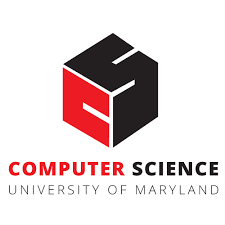|
Evan Golub
1210 Brendan Iribe Center Department of Computer Science University of Maryland egolub AT cs.umd.edu (replace AT with @ before sending) |
 
|
| About | Publications | Projects | Teaching | Service & Societies | Photography |
Currently Teaching: |
|
A majors course introducing students to the foundations of computational thinking, basic program design and testing, and implementation in Java using object oriented programming. |
|
Second-year course in the two-year Digital/Design Cultures and Creativity honors living/learning program with a focus on HCI research methods but with an overall goal of understanding and applying research methods as well as developing a capstone proposal. |
Previously Taught Courses: (at Maryland unless otherwise noted) |
|
A course for non-majors introducing Internet technologies (telnet, e-mail, WWW, HTML) with some research applications. |
|
A course for non-majors introducing them to basic computer usage and common applications (Windows, word processing, spreadsheets, databases). |
|
A majors course introducing students to the foundations of computational thinking, basic program design and testing, and implementation in Java using object oriented programming. |
|
A majors course covering the use of data structures such as doubly linked lists, binary search trees, heaps, hash tables and graphs and introducing the use of templates and inheritance in C++. |
|
A majors course covering topics in discrete mathematics such as formal logic, predicates, induction, set theory and probability. When teaching an "H" section it is an honors version with additional material and applications. |
|
A majors course meant to introduce students to the issues involved in programming applications with graphical user interfaces - specifically looking at Embedded Visual Basic. |
|
A one-credit special topics course for late sophomore and early junior Computer Science Majors meant to offer a guided exploration of various areas in CS as well as introduce and discover resources for staying in touch with current trends in the field. |
|
A majors course covering topics such as algorithm design and asymptotic analysis. |
|
A one-credit special topics majors course exploring and discussing the diverse areas of computing through the lens of TED talks. |
|
A majors course looking at language design towards specific programmer needs, specifically concurrent and distributed programming. |
|
A majors course covering concepts involved in human-computer interaction. |
|
A majors course covering mobile development, with specifics about the iPhone OS platform. |
|
The first course in the two-year Digital Cultures and Creativity honors living/learning program. |
|
Second course in the two-year Digital Cultures and Creativity honors living/learning program, looking at computing in society, taught with an HCI focus. |
|
Second-year specialization course in the two-year Digital Cultures and Creativity honors living/learning program that is an HCI course meant for a student population that crosses disciplines. |
|
Second-year course in the two-year Digital/Design Cultures and Creativity honors living/learning program with a focus on HCI research methods but with an overall goal of understanding and applying research methods as well as developing a capstone proposal. |
|
Second-year specialization course in the two-year Digital/Design Cultures and Creativity honors living/learning program where students are guided through the research process as they undertake their capstone projects. |
|
A course for the University Honors program, evolved from HONR 279K to explore the interactions of art, sciences, and ethics using photography as the connecting thread. |
|
A course for the University Honors program, using photography as a central theme to explore artistic concepts, mathematics, computer programming, human-computer interaction, ethics, and archiving. |
|
A course for high school seniors thinking about attending college giving a basic introduction to the UNIX operating system, e-mail and usenet news. |
|
A general studies course required for all undergraduate students covering both formal logic and basic computer programming in either Pascal or the C-Shell scripting language. |
|
This page last modified on Saturday, 09-Dec-2017 11:21:11 EST. |